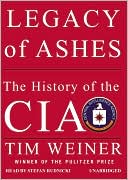Naive Idealism Rules the Donkey's House
Special thanks to Congress for this one.
Support for such a measure in Turkey was almost certainly acquired after we spit in their face last week by holding a vote denouncing the Turks for genocide over nine decades ago! Well thank you very much MRS. SPEAKER; thanks to this naive idealism we're gonna have a helluva time with the Kurds in the one successful area of our Iraqi occupation. These are not the days of Wilsonian foreign policy. You can't just preach idealism anymore; shit like this has consequences. I mean, why are we doing this NOW? What will it do? Calling genocide "genocide" does nothing but embarrass. It serves no ones' interests except a few congressmen who feel the need to play history's moral judge. This is liberal idealism run amuck.
We're gonna need State to step up here in a major way to keep this thing under control or we're gonna lose the Turks and the Kurds; we simply don't have the force strength to play border-babysitter in the north. Not to mention what will happen to our strategic options in the Middle East if Turkey curbs our logistic weigh station and basing area rights. This isn't totally the fault of Congress but they certainly opened the door. Ladies and gentlemen, your tax dollars at work.
Turkey Requests Authority to Attack
By Molly Moore
Washington Post
ISTANBUL, Oct. 15 -- The Turkish government asked parliament Monday for a one-year authorization to conduct military operations in northern Iraq to attack Kurdish separatist guerrillas, but senior government officials attempted to play down the prospects of an immediate attack.
"It is impossible to speak for certain on a possible cross-border operation if the parliament approves it," Gen. Ergin Saygun, deputy chief of the Turkish General Staff, told reporters, according to the Anatolian news agency. "We will look at the season and go over our needs before launching a military operation."
Deputy Prime Minister Cemil Cicek said that "our hope is that we will not have to use this motion." But he added: "The reality that everyone knows is that this terrorist organization, which has bases in the north of Iraq, is attacking the territorial integrity of Turkey and its citizens.
"The motion targets PKK alone and is designed to prevent further bloodshed," Cicek said after a Council of Ministers meeting Monday, using the Kurdish-language initials of the Kurdistan Workers' Party. "We have always respected the sovereignty of Iraq, which is a friendly and brotherly country to us."
The parliament is widely expected to approve the authorization later this week.
Oil prices soared to a new high of just over $86 a barrel on Monday, largely on fears that Turkish military action could disrupt supplies as winter nears, industry analysts said.
The Turkish government sought the legislative authorization following a spate of attacks that have killed 30 soldiers, police officers and civilians in the past two weeks. There is also growing frustration that the United States and Iraq have done little to curb separatist activities in the Kurdish region of northern Iraq.
PKK rebels seeking a Kurdish state have waged a guerrilla war against Turkey for the past 23 years. During the 1990s, Turkey conducted numerous incursions into northern Iraq, but since the U.S.-led invasion of Iraq in 2003, the Bush administration has pressured Turkey not to cross the border.
U.S. authorities have urged Turkey to use restraint in military operations, fearful of igniting one of the few relatively stable regions in Iraq.
Iraqi Prime Minister Nouri al-Maliki said he has scheduled an emergency meeting Tuesday with top aides to discuss the border problems and is prepared to meet with Turkish officials to calm the crisis.
Support for such a measure in Turkey was almost certainly acquired after we spit in their face last week by holding a vote denouncing the Turks for genocide over nine decades ago! Well thank you very much MRS. SPEAKER; thanks to this naive idealism we're gonna have a helluva time with the Kurds in the one successful area of our Iraqi occupation. These are not the days of Wilsonian foreign policy. You can't just preach idealism anymore; shit like this has consequences. I mean, why are we doing this NOW? What will it do? Calling genocide "genocide" does nothing but embarrass. It serves no ones' interests except a few congressmen who feel the need to play history's moral judge. This is liberal idealism run amuck.
We're gonna need State to step up here in a major way to keep this thing under control or we're gonna lose the Turks and the Kurds; we simply don't have the force strength to play border-babysitter in the north. Not to mention what will happen to our strategic options in the Middle East if Turkey curbs our logistic weigh station and basing area rights. This isn't totally the fault of Congress but they certainly opened the door. Ladies and gentlemen, your tax dollars at work.


